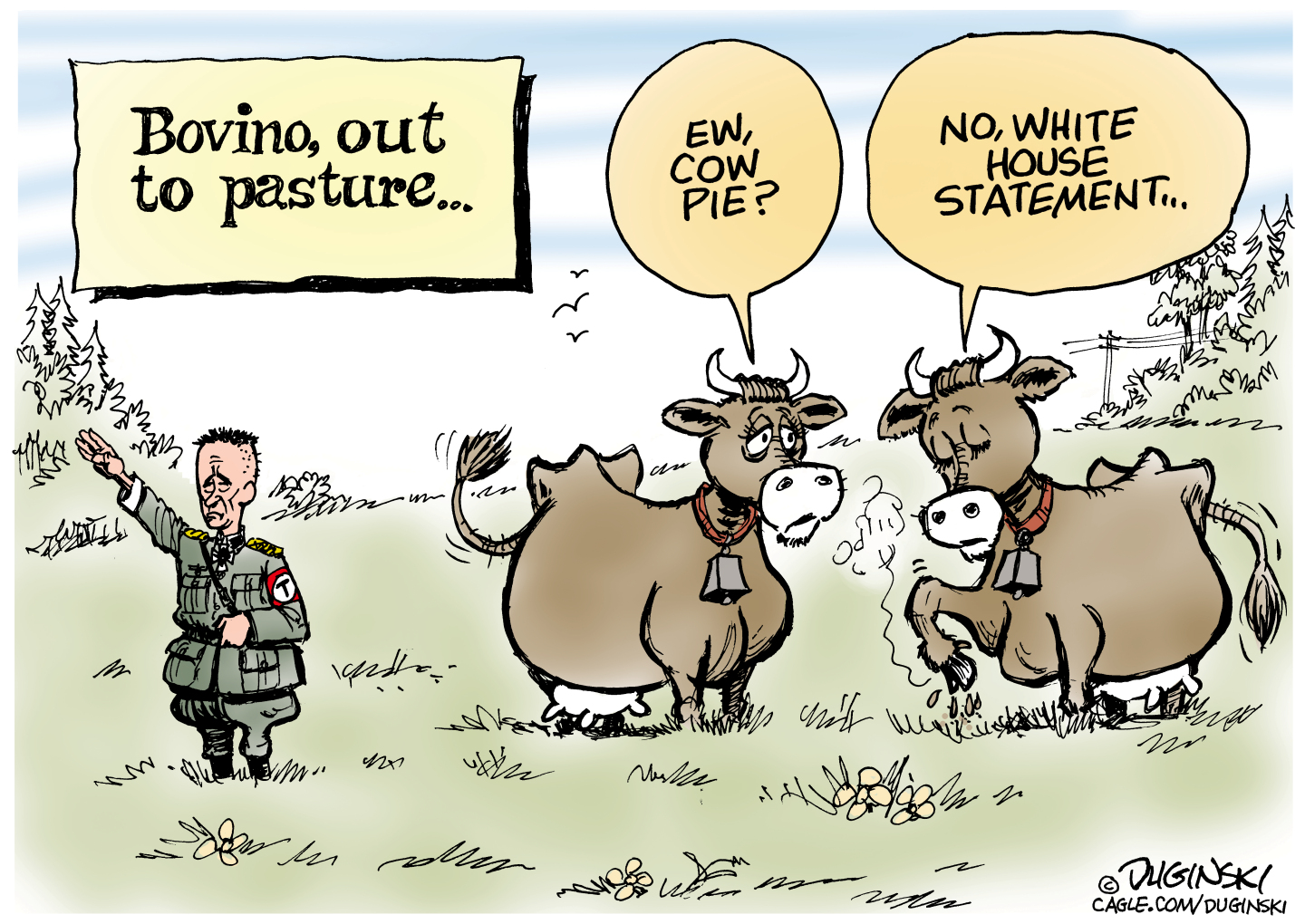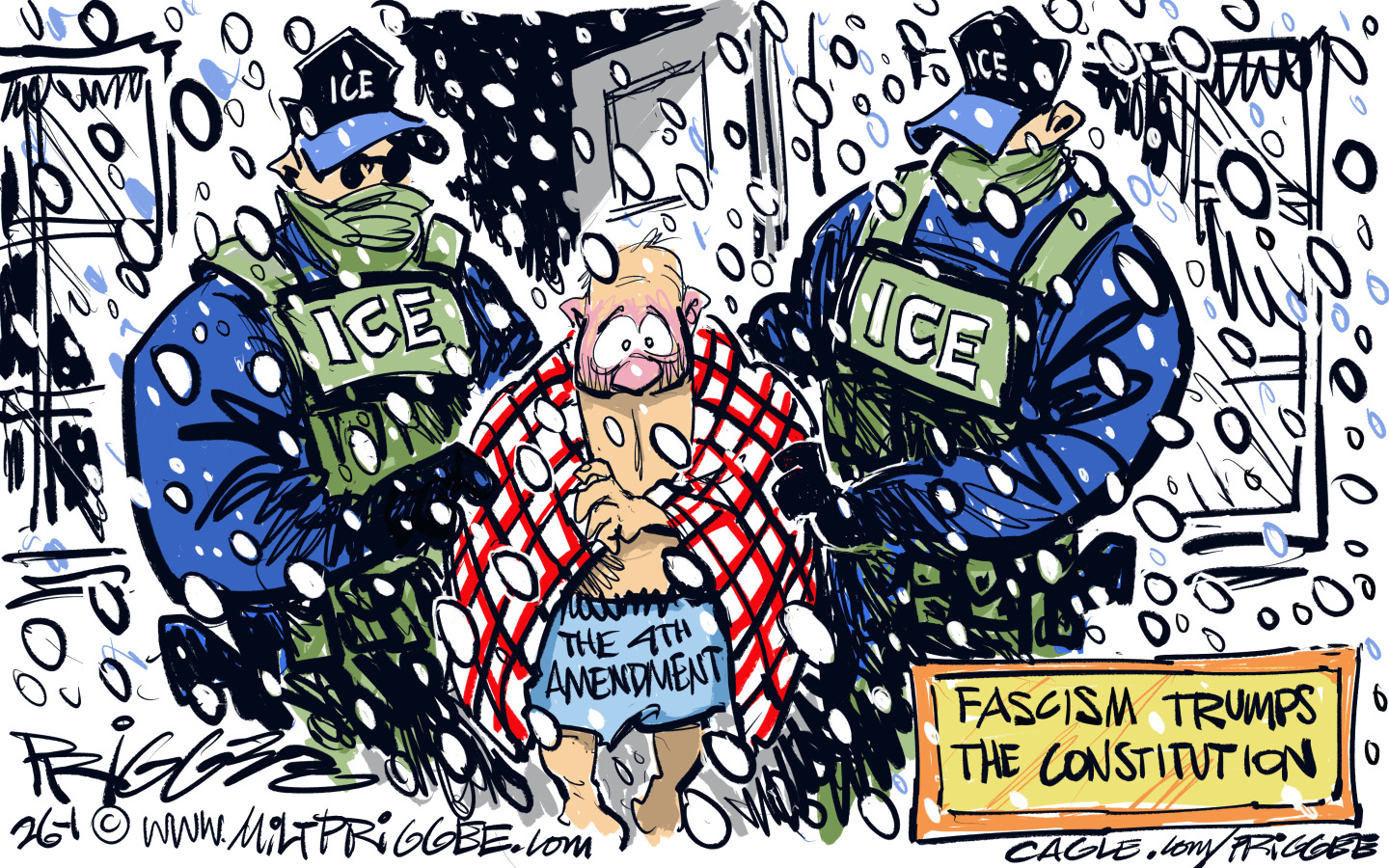President Trump is creating a privileged class of citizenship just for conservative Christians
The message from Trump to conservative Christians is clear: This administration will privilege your beliefs above others.


President Trump has a message for conservative Christians: It's all about you. On Thursday, he'll sign an executive order that professes to strengthen "religious liberty," but isn't about the liberty of Jews or Muslims or Hindus or mainline Protestants. It's about offering some special privileges to right-wing Christians who want to restrict women's reproductive lives and turn their churches into semi-official arms of the Republican Party.
That may sound like a crazy exaggeration, but it isn't. And it helps explain the unlikely degree of loyalty Trump got from religious right voters in the 2016 election.
During the campaign, many people puzzled over evangelicals' enthusiastic embrace of Trump. After all, here was a thrice-married New Yorker who relished his libertine lifestyle and could barely pretend to be a person of faith, yet he got the support of 80 percent of white evangelicals, more than any candidate since the beginning of exit polls. If it was just that he's a Republican, you'd think there would have been some drop-off, especially after he was caught on tape bragging about sexually assaulting women. But no.
The Week
Escape your echo chamber. Get the facts behind the news, plus analysis from multiple perspectives.

Sign up for The Week's Free Newsletters
From our morning news briefing to a weekly Good News Newsletter, get the best of The Week delivered directly to your inbox.
From our morning news briefing to a weekly Good News Newsletter, get the best of The Week delivered directly to your inbox.
So what was it they thought they were getting with Trump? There are a number of things; one compelling story is that he represents a return to a patriarchal vision of social relations many of them found attractive. But the most compelling explanation may lie in his particular combination of xenophobia and bigotry.
That's not because evangelicals are xenophobic and/or bigoted, though some surely are. It's because Trump was forthright about establishing lines of division and saying that he was going to be a president only for certain people. It was always about Us and Them with Trump, who assured conservative Christians that they were part of Us. Part of that was a pledge to advance a special set of rights for conservative Christians in particular.
So far, he's given them much of what they wanted. He appointed Neil Gorsuch, who is all but guaranteed to be a vote to overturn Roe v. Wade, to the Supreme Court. He not only revived but expanded the "global gag rule," forbidding U.S. aid money for all global health from going to any organization that even mentions abortion to anyone — so if you tell a sex trafficking victim where she can go to end the pregnancy that resulted from her rape, you'll lose American aid funds. He has appointed anti-abortion and anti-contraception zealots to run family planning policy in the Department of Health and Human Services. And now comes this executive order.
While the full text of the order hasn't been made available yet, in comments to reporters, administration officials have described it as broadening the ability of organizations and companies to exempt themselves from certain laws, like the Affordable Care Act's mandate that insurance plans cover birth control, if they claim a religious objection. That's aimed squarely at conservative Christians — most other faiths have no problem with birth control — and all but creates a special class of citizenship for those who hold a particular set of religious beliefs. Others with different ideas — whether they got them from their own scriptures or from their contemplations of secular morality — wouldn't be allowed to decide that they'd prefer not to obey certain laws.
A free daily email with the biggest news stories of the day – and the best features from TheWeek.com
The other focus of the executive order is the Johnson Amendment, a law dating back over half a century that prohibits non-profit organizations, including churches, from explicitly endorsing political candidates and engaging in campaign work. Trump's order would essentially order the IRS not to enforce the law. It's critical to understand that there's no widespread clamor among varied religious sects and houses of worship to allow them to get more deeply involved in partisan political campaigns. Most are perfectly happy with the law as it is, which allows a church, synagogue, or mosque to talk about politics, drive people the polls, and engage with the political world so long as they stay away from clear partisanship and endorsements of candidates. It's only certain evangelical churches who would like to instruct their members to vote Republican and work more closely with Republican candidates.
The message from Trump to conservative Christians is clear: This administration will privilege your particular beliefs above others. This isn't a nation where all are treated equally, it's a nation where you're on top.
And that's precisely what many Christians feel they've lost: the cultural hegemony that gave their faith a position so privileged that for a long time no one even questioned how things could be otherwise. That's why something as innocuous as putting up a sign reading "Happy Holidays" in a department store could provoke such enduring rage. What to most people looked like nothing more than a well-meaning attempt to be inclusive and welcoming to all customers seemed to some like a displacement, a message that now, instead of their culture being the culture, they'd have to share space with everyone else.
Which is exactly what it is. So when Trump told them that once he was elected "We're going to start saying 'Merry Christmas' again," he wasn't just talking about "Merry Christmas." He was talking about rolling back the clock to the days when Christianity was the only American faith that mattered. That's what conservative Christians understood, that the reversion to an earlier time promised by Trump's Make America Great Again slogan was a comprehensive package. He offered them a vehicle for their religious nationalism, with some other kinds of nationalism thrown in for good measure.
And now he's delivering.
Paul Waldman is a senior writer with The American Prospect magazine and a blogger for The Washington Post. His writing has appeared in dozens of newspapers, magazines, and web sites, and he is the author or co-author of four books on media and politics.
-
 5 redundant cartoons about Greg Bovino's walking papers
5 redundant cartoons about Greg Bovino's walking papersCartoons Artists take on Bovino versus bovine, a new job description, and more
-
 31 political cartoons for January 2026
31 political cartoons for January 2026Cartoons Editorial cartoonists take on Donald Trump, ICE, the World Economic Forum in Davos, Greenland and more
-
 Political cartoons for January 31
Political cartoons for January 31Cartoons Saturday's political cartoons include congressional spin, Obamacare subsidies, and more
-
 The billionaires’ wealth tax: a catastrophe for California?
The billionaires’ wealth tax: a catastrophe for California?Talking Point Peter Thiel and Larry Page preparing to change state residency
-
 Bari Weiss’ ‘60 Minutes’ scandal is about more than one report
Bari Weiss’ ‘60 Minutes’ scandal is about more than one reportIN THE SPOTLIGHT By blocking an approved segment on a controversial prison holding US deportees in El Salvador, the editor-in-chief of CBS News has become the main story
-
 Has Zohran Mamdani shown the Democrats how to win again?
Has Zohran Mamdani shown the Democrats how to win again?Today’s Big Question New York City mayoral election touted as victory for left-wing populists but moderate centrist wins elsewhere present more complex path for Democratic Party
-
 Millions turn out for anti-Trump ‘No Kings’ rallies
Millions turn out for anti-Trump ‘No Kings’ ralliesSpeed Read An estimated 7 million people participated, 2 million more than at the first ‘No Kings’ protest in June
-
 Ghislaine Maxwell: angling for a Trump pardon
Ghislaine Maxwell: angling for a Trump pardonTalking Point Convicted sex trafficker's testimony could shed new light on president's links to Jeffrey Epstein
-
 The last words and final moments of 40 presidents
The last words and final moments of 40 presidentsThe Explainer Some are eloquent quotes worthy of the holders of the highest office in the nation, and others... aren't
-
 The JFK files: the truth at last?
The JFK files: the truth at last?In The Spotlight More than 64,000 previously classified documents relating the 1963 assassination of John F. Kennedy have been released by the Trump administration
-
 'Seriously, not literally': how should the world take Donald Trump?
'Seriously, not literally': how should the world take Donald Trump?Today's big question White House rhetoric and reality look likely to become increasingly blurred
